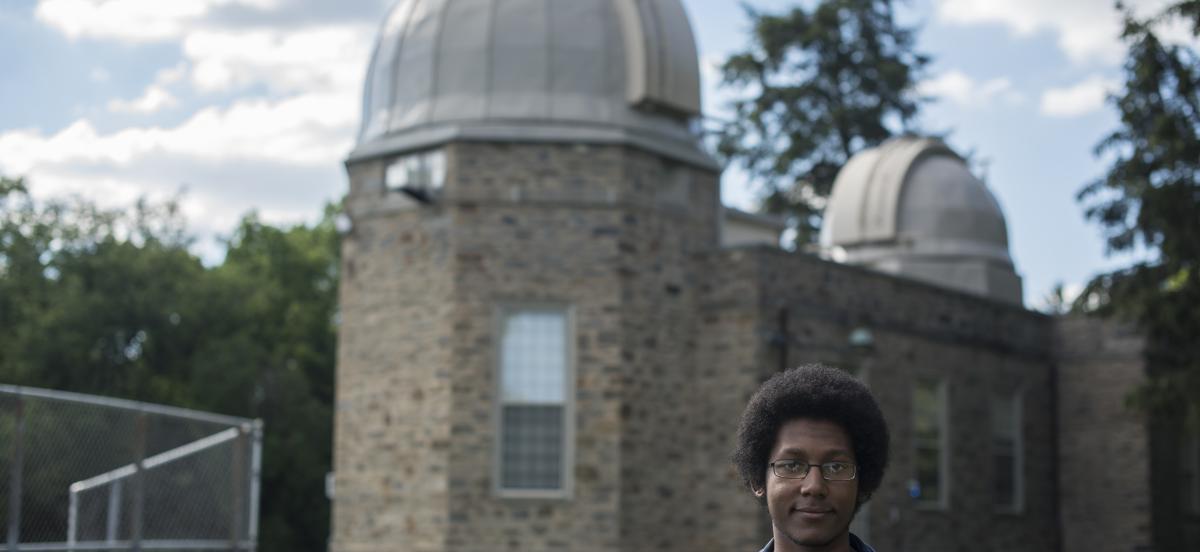Summer Centered: David Zegeye ‘19 Studies the Evolution of Galaxies

Photo by Holden Blanco '17
Details
The KINSC Scholar is getting a headstart on programming languages and cosmology doing research with Assistant Professor of Astronomy Desika Narayanan.
This summer, David Zegeye ‘19 has a chance to prep for his dream career in astronomy. With funding from the Marian E. Koshland Integrated Natural Sciences Center, he is working alongside Assistant Professor of Astronomy Desika Narayanan (who is also Zegeye’s academic advisor) on a research project that may give the field of cosmology an important insight into how galaxies evolve. They are testing the hypothesis that early active galaxies aged into currently non-active ones, but at this point, Zegeye notes, the assumption lacks proper scientific backing.
"Let us use an analogy between the age of the galaxies to the age of people," Zegeye explains, "and say that if we see a lot of younger people at one point and then at a much later point in time we see a lot of older people, we cannot make the assumption that these younger people turn into these older people because we did not physically observe the younger people age into the older people, unless we have rigorous ways to test that postulation."
Every morning Zegeye arrives to the astronomy lab in Stokes to meet his colleague, Jarren Jennings '19, and help Narayanan gather data to confirm or disprove the hypothesis. The two interns first polish up any previous work together before their professor assigns them with a new set of tasks for the day; likewise, all planning and procedures are carried out in close collaboration. This non-competitive environment has had a positive impact on his work, Zegeye believes.
"[It] has allowed for Jarren and I to share ideas that we would have never thought of individually and make more progress in our work together," he says.
For those problems that involve solutions that are too problematic or time-consuming, Zegeye uses a user-friendly programming language called Python. This allows him to type strings of code that specify which actions he wants the computer to perform, such as determining the position and size of galaxies in hundreds of pictures—a task Zegeye would spend much longer on without this handy shortcut. Because a computer is incapable of discerning certain features of a photograph the way the human eye does, Zegeye must be very specific in his use of Python to teach the machine about the procedures it is asked to carry out in order to correctly identify a galaxy.
"My internship has already taught me how to use Python effectively for coding purposes, as well as how to be creative when it comes to solving problems that have multiple ways to be solved," says Zegeye, who recognizes that without this internship he would only learn the use of Python for these purposes much later in his Haverford career.
Thanks to this opportunity, not only has Zegeye’s dream to become an astronomer become more tangible, but it has also sparked ideas for his own potential research.
"I am unsure what I intend for my thesis to focus on at the moment, since I am only a rising sophomore," he says, "but I would not be surprised if it were related to what I am doing right now."
—Katya Konradova '19
"Summer Centered” is a series exploring our students' Center-funded summer work.



